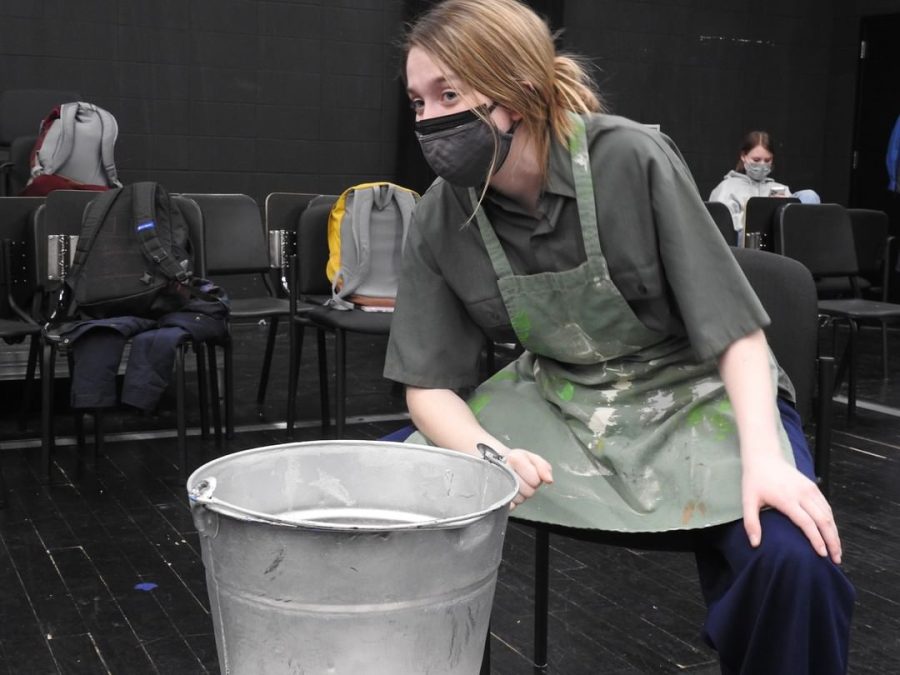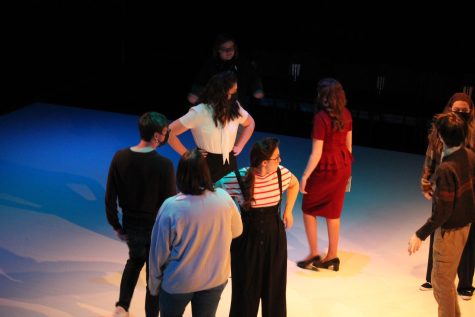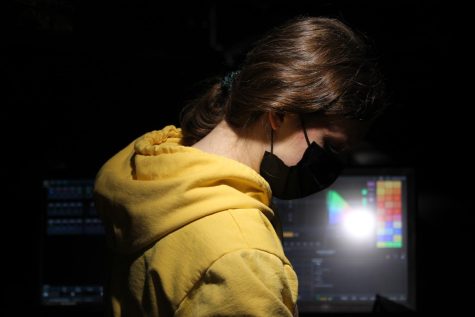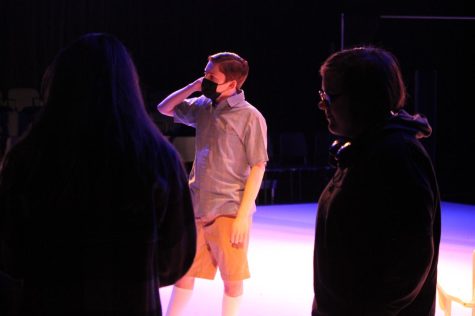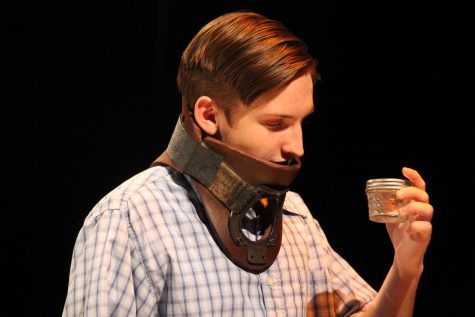 Looking back on performances and movies from the 20th century, it becomes clear that cultural accuracy has not always been a priority. Minorities were barely seen in the entertainment industry, and when they were, they were generally portrayed as negative stereotypes. The entertainment industry built their business on quick jokes promoting discrimination and completely ignored the obstacles minorities face in the real world.
Looking back on performances and movies from the 20th century, it becomes clear that cultural accuracy has not always been a priority. Minorities were barely seen in the entertainment industry, and when they were, they were generally portrayed as negative stereotypes. The entertainment industry built their business on quick jokes promoting discrimination and completely ignored the obstacles minorities face in the real world.
Recently, companies have been recreating old shows such as “Thoroughly Modern Millie,” or “Anything Goes,” but with re-creation, there needs to be rewriting. Many of the story lines used 50 years ago are not acceptable nor culturally accurate for audiences now. Society has grown to learn that certain sayings, phrases or words are controversial and unacceptable in today’s world.
Even though shows are changing to fit today’s standards, many believe some shows have been ruined altogether. They believe directors have thrown the meaning of the shows out the window since they are lacking the cultural meaning of the time, even if it is incorrect today. There is a fine line between portraying a time period accurately and being culturally insensitive, so how can this line be more clearly defined?
Senior Jillian Keppy has been keeping up with the cultural adaptations in the entertainment industry.“It is very easy to tell when organizations change their themes to cover up the cultural mistakes they made in the past. I think that it’s important that production companies of tv shows, movies, and live performance companies put lots of thought into creating art that accurately represents groups in the first place rather than trying to improve past works.”
Schools have taken the idea of re-creation to another level by performing older shows, but taking out segments that are no longer acceptable. The alterations made have not taken away from the meaning of the performance; instead, they have only taken away the outdated behavior. Even though many are in full support, there are those who believe taking out slurs and blatant racism removes the accuracy of cultural attitudes of the time period.
Senior Mylanah Derrer is a part of the drama department at PV. “I think in high school settings, words should be altered in order to promote inclusivity and steer away from any slurs that could be offensive to students,” she said. “If they do use the original language, I think that disclaimers should definitely be provided prior to the performance.”
Many of the “classic” high school plays such as “Thoroughly Modern Millie” and “Kiss Me, Kate,” performed at schools across the nation contain underlying racism, leaving many districts cautious to even perform them. At PV, there has been much controversy over which plays are appropriate for high schoolers to perform.
Each show performed is chosen by the drama director Christiana Myatt and then has to be approved by administration, allowing everyone to be in the loop. Not only does the performance rely heavily on adult approval, but it is vital that the students want to be a part of the production as well.
This spring, the PV Drama Department is performing “What I Did Last Summer” written by A.R. Gurney. This show takes place at the end of World War II and features a young boy spending his summer with his sister and mother, while his father is serving overseas. Throughout the summer he meets an old woman who teaches him new concepts and ideas which leads him to refuse going back to school, causing controversy in his family.
Throughout the show, there is hidden racism found in the few slurs used and inappropriate comments, most of which have been taken out. The goal of this show is not to make people uncomfortable, instead it is the complete opposite, the drama department wants to tell a story that many people can relate to.
Drama director Christiana Myatt has been a part of theater since she was in high school and has brought her high school memories to life by directing the show she was once a part of. “For every show we do we have an intro where we talk about the show and what’s going on in the time period and what led to the creation of the show. We take the time to discuss all those issues and talk about them,” she described. “If anyone ever feels uncomfortable we make sure to address it, understand why they feel that way and discuss the importance of it.”
The changes that have been made are to allow the students to feel more comfortable with the role they were given. Although many believe performing is an act of being someone else, in reality is it just a different way of expressing oneself. Each time a new person plays a role, they add a new spin to it. With directors being flexible enough to change certain segments or lines it allows the actor to continue creating the character they want to become.
Senior Grace Engstrom has been doing theater since sixth grade and is playing the part of Anna Trumbull. “I think in order to effectively play a character you have to really dive down deep into that character and truly understand everything that they are about,” she explained. “Every play has its own story to tell, it was written for a reason with the intent of showcasing a specific story. There is a very fine line when it comes to adapting shows because you don’t want to take away the integrity of the show, but when these were written things were very different than they are now.”
During rehearsals, students are able to refrain from saying certain lines or words, if they choose, and only say them during performances to allow for accuracy of the time. By withholding certain phrases during rehearsals it creates a larger impact on the audience when used during the show. Students who have these lines do not want to create an atmosphere where the word loses its harsh meaning by saying it multiple times a day. Although there are some moments throughout the show with culturally insensitive phrases or acting, the majority of it has been removed.
Changing old performances into new ones to fit the culture of today’s world allows students to perform these shows, while some believe it takes away from the historical accuracy of the show. Many are left pondering the correct route. Do directors keep the show historically accurate or change it to better fit today’s standards?
While issue is one that will likely always bring disagreements, the show must go on.


